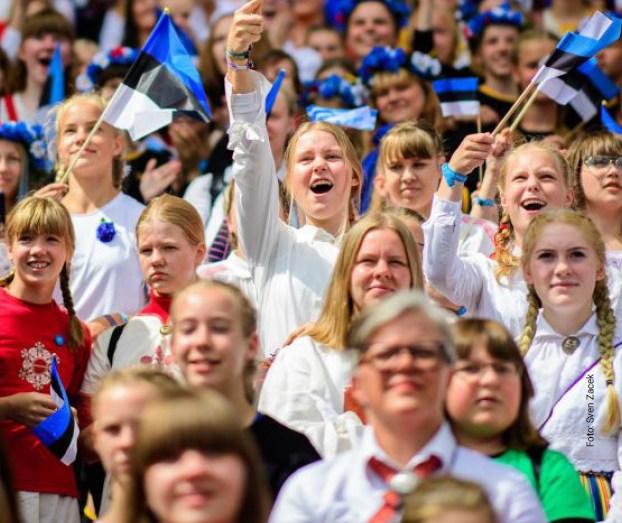




Reelika Väljaru
Karin
Närep Ministry of Culture of Estonia



▪ Small and efficient
▪ 11 ministries, State Chancellery
▪ Very decentralized PA system, incl organizational development
▪ The activity based budgeting and new system of strategic planning in force since 2019-2020
▪ Digital governance, transparency, and efficiency, with a strong emphasis on e-government services and minimal bureaucracy
▪ e-Tax, e-Health and usage of AI in government services
▪ Digital Identity & E-Signature
▪
Flat organizational structure, staff of 90

▪ 1 policy advisor per area:
▪ Literature and Publishing
▪ Theatre
▪ Music
▪ Fine Arts
▪ Audiovisual policy and Cinema
▪ Arhitecture and Design
▪ Folk Art
▪ Museums
▪ Libraries
▪ Cultural Heritage Digitalization
▪ Creative Industries
▪ Broadcasting
▪ Cultural Diversity and Integration (several advisors)
▪ Sports (several advisors)






▪ Main aim of the self-assessment:
▪ Where are we as organization at the moment? How did we get here?
▪ Are people happy or do we need changes?
▪ If we want to have better corporate governance toward our agencies - what to we need to do that? What kind of capacities we lack at the moment? How do we measure our success toward better corporate governance?
▪ Decision to start by top management – strong and visible support to use the self-assessment results for the further actions

Self-assessment team – involve as much as possible!


▪ 20 assessors (22% of staff!) - wide coverage in all levels, ages and qualifications, top management involved
▪ Voluntarily composed
▪ Training
▪ Self-assessment
▪ Consensus meeting
▪ Discussions on the organizational strategy


▪ Evidence report
▪ Composed by project manager
▪ Based on different documents, description of the events etc
▪ Evidence on strenghts (no improvement areas or scores etc!)
▪ For self-assessment team voluntary to use




▪ Preparing the vision MOC –involving all self-assement team members, but even more broadly our people.
▪ Every word carefully selected ☺



▪ Clear expectations to horizontal and support functions.
▪ Aims, indicators, expected results for the years 2022-2025.
▪ Expectations vs clear and discussed aims.

CAF improvement action plan – approved and regular monitoring of the implementation


Implemented so far:
▪ The description of the management principles and processes of the ministry - approved and implemented, in detailed way introduced to the whole ministry as well;
▪ The expectations of the owner - the approved goals and indicators for the state foundations (incl requirement to implement the quality management method) – work in process (CAF training for state museums just provided);
▪ More involvement of the partners to policy design, incl more feedback - work in process.

▪ Involve as much as possible – in our case it was necessary and worked!
▪ Make half of the work by project team – evidence report
▪ Clear communication – in every step of the process
▪ Involvement of the top management – the views from the top very different than from the lower levels, different functional areas acted like „silos“ in the ministry, no feeling of „our joint“ organization.
▪ Still learning how to achieve.
▪ However – the organizational strategy is helping to keep the track!
▪ CAF improvement plan integrated into the annual action plan.
▪ Promoting the CAF self assessment as an opportunity for monitoring organizational quality also within our area of governance.
▪ People.



